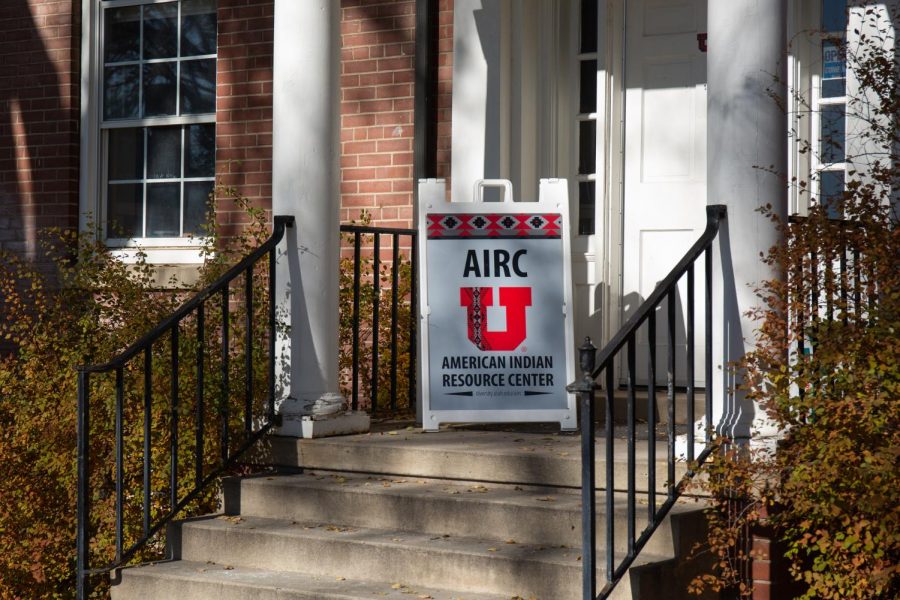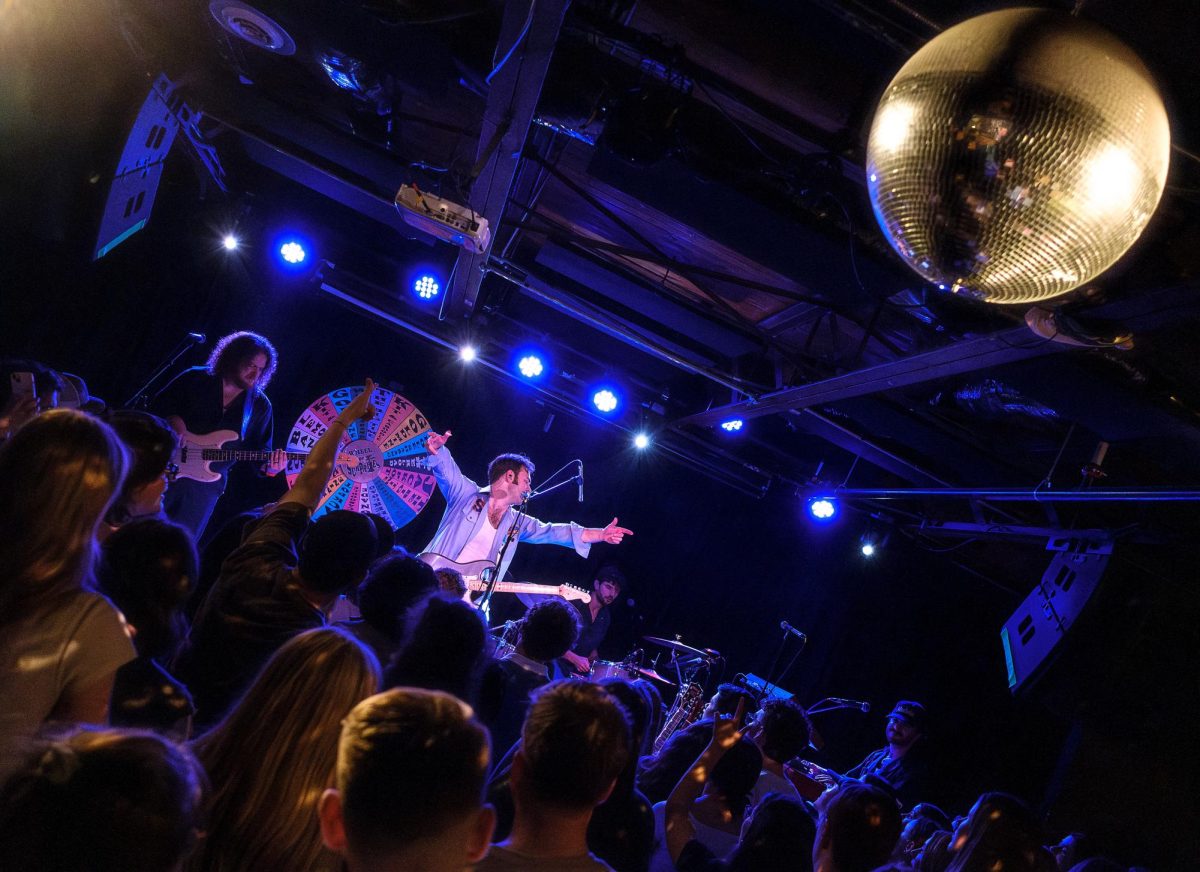Here’s how the U is Honoring its Native American Students for Native American Heritage Month
The University of Utah American Indian Resource Center (AIRC), Utah on Nov. 17 2022. The center has since closed following HB 261. (Photo by Julia Chuang | The Daily Utah Chronicle)
November 19, 2022
November is Native American Heritage Month, and the University of Utah is working to honor the Native American people of Utah. Some of the ways the U is doing this is by recognizing Indigenous staff at the U, encouraging people to read books about Native American heritage and holding various events around campus and at sports games to educate people and recognize the U’s relationship with the Ute Tribe.
The U has also opened a scholarship specifically for Native students at the U, meant to boost the amount of Native Americans attending the U. This scholarship is available to students for eight semesters. To be eligible, Native students must be part of one of the federally recognized tribes in the U.S.
“Native American History Month honors the Indigenous nations, and their citizens, which share North America with the United States,” said Thomas Swensen, an assistant professor of ethnic studies at the U, in an email interview. “This acknowledgment also serves to revere the ongoing perseverance of Native American people and their traditions.”
Heather Tanana, an assistant professor of law at the U, said honoring Native Americans and their history helps eliminate misinformation and negative stereotypes about the Indigenous community, telling their stories in a more accurate way.
“Historically, Native Americans have been written about and portrayed by non-natives, and so the narrative that’s told really doesn’t align with the real history that’s happened in this country and what Native Americans represent,” Tanana said.
The month of November not only helps show the true history of Native Americans but can also help people develop respect for their different traditions, said Swensen.
“For instance, each local nation, such as the Navajo or the Ute, possesses a distinct culture that has existed here long before the region became part of the United States,” Swensen said.
In recent years, the U started its Indigenous Land Acknowledgement to recognize that the U is built on the land of several different tribes, including the Ute, Shoshone, Goshute and Paiute tribes, to honor the Native Americans of Utah.
Despite having scholarships and land acknowledgments already in place, said Tanana, the U continues to find ways to recognize its Native American students. One way the U is doing this, said Tanana, is by adding more curriculum centered around different aspects of Native Americans.
“The university is expanding its curriculum around Native Americans, like up at the health science campus and medical school,” Tanana said. “[Associate Professor of Pediatrics] David Sandweiss leads a program called TRUE. It [is about] tribal, rural and underserved communities, and we’re working with him on a new course on Native American Health.”
In the future, Tanana hopes that the steps the U is taking will help increase the Indigenous representation within the students and faculty, and she wants these programs to help educate people everywhere on Native American history and facts that aren’t taught in middle and high schools.
“When I present in Utah, one of the first questions I ask is how many tribes we have in Utah, and the vast majority of the audience doesn’t know the answer to that,” Tanana said. “We have to continue the education of our community and the broader public.”
For people who are interested in learning more about Native American heritage, Swensen encourages these people to turn to the “American Indian Resource Center here on campus and take a class from the range of American Indian Studies courses Ethnic Studies offers every semester.”













